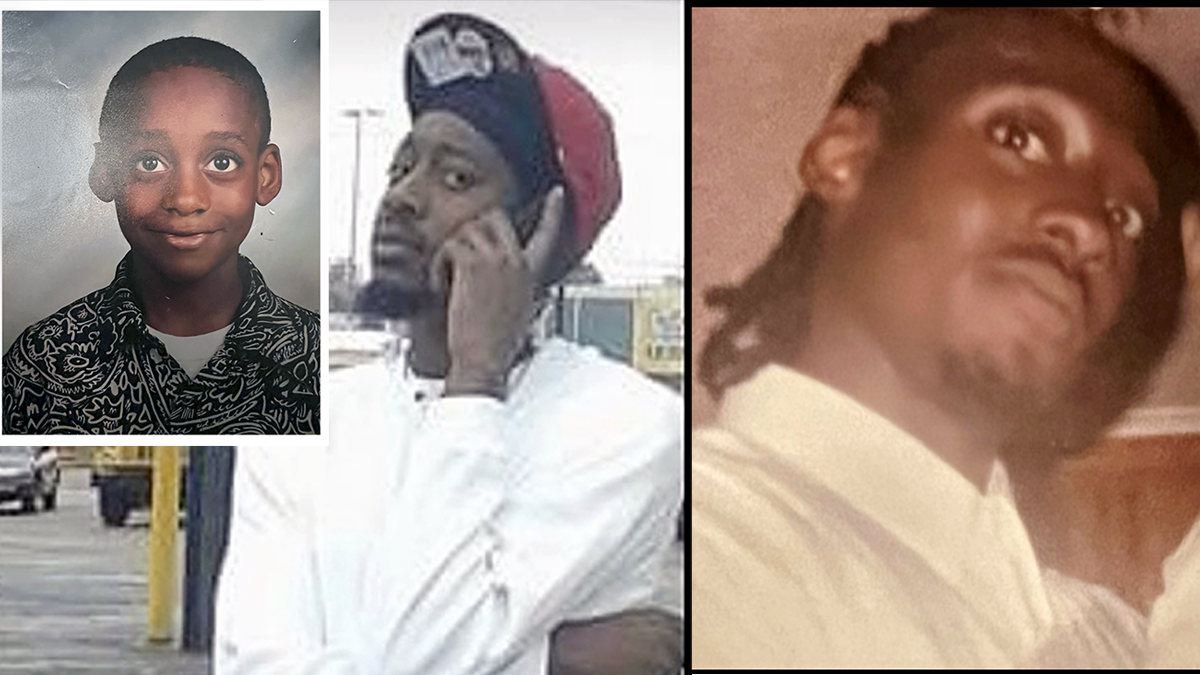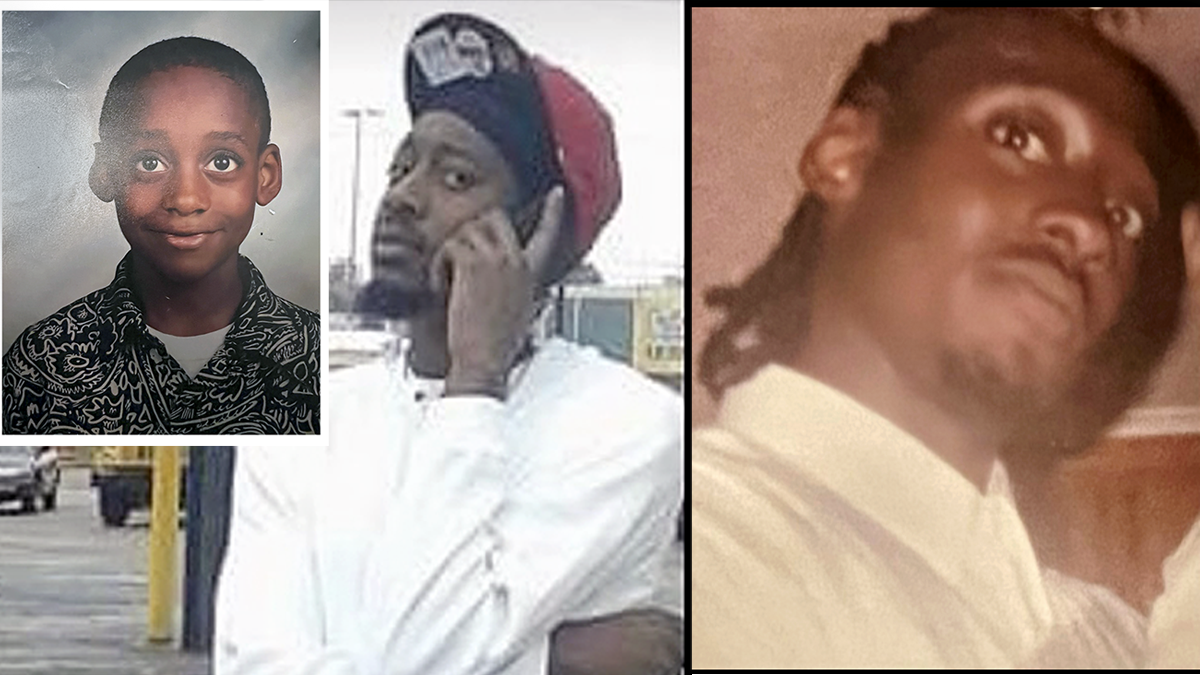‘I’ll Shoot You!’: Louisiana Cops Wanted Black Man to Work as Confidential Informant Against His Nephew, But When He Refused, He Was Stalked, Harassed and Killed, Lawsuit Says
Police in Louisiana wanted Fleen Myles III to work as a confidential informant against his nephew, but the 33-year-old Black man refused to turn against his family.
As a result, he was harassed, threatened, and killed by Shreveport police, according to a federal lawsuit filed last week, which points out the law enforcement agency has a long and ugly history of police abuse against Black citizens.

The shooting took place on Nov. 23, 2023, after Myles accepted a ride from a man named Jacobi Brown in the Sunset Acres neighborhood, where more than 80 percent of its residents are Black.
The lawsuit states that Shreveport police pulled over Brown in his Chevrolet Impala for a window tint violation, then began harassing Myles, who was sitting in the passenger seat, demanding his identification even though they had no reasonable suspicion he was committing a crime, meaning he was not required to hand over his identification.
Myles showed the cops his insurance identification on his phone, but that was not good enough for the cops, who wanted to see a government-issued identification, so they ordered him out of the car.
Once Myles stepped out of the car, he took off running, with Shreveport police officer Maverick Caldwell II chasing him, the claim states.
At one point, Caldwell deployed his Taser, but the prongs did not strike Myles, who continued running through a parking lot and onto another block with Caldwell chasing behind him, yelling, “I’ll shoot you!”
Myles ran into a residential carport, where he fell down and stumbled, creating a loud crashing sound. Caldwell entered the carport and once again said, “I’ll shoot you,” according to the suit.
Myles attempted to stand up but tripped over a lawnmower and folding metal chair. He then stumbled into a chain-linked fence, placing both hands against the fence to brace himself.
That was when Caldwell noticed a gun in his right hand and pulled out his own gun.
Myles managed to stand back up and run away and, at one point, turned to look back at his pursuer but kept the gun pointed toward the ground, according to the claim.
That was when Caldwell fired his gun four times, striking Myles in the lower back, left buttock area, and his right bicep from the side, where the bullet tore through his armpit and into his chest.
According to the lawsuit, the shooting was just one of many violent incidents against Black people over the years.
The incident involving Mr. Myles is a result of SPR’s patterns and practices of harassing citizens of Shreveport, seizing individuals without probable cause, escalating minor offenses or non-offenses into situations involving the use of force, and engaging in excessive force against members of the Shreveport community.
In fact, Sam Cooke, one of the most famous R&B singers in American history, wrote his famous song, “A Change is Going to Come,” after he and his entourage were denied a hotel room in 1963 based on their race and were then arrested by Shreveport police for disturbing the peace after one of their friends began honking the horn of the car in the parking lot of the hotel. The song was released the following year, becoming an anthem for the civil rights movement.
Pattern of Harassment
The lawsuit states that Black people make up the majority in Shreveport and are more than six times as likely to be shot and killed by police compared to white residents.
The harassment against Myles began last year after Shreveport police suspected his nephew of shooting another person, according to the lawsuit.
In an email sent to Detective Clifford Worthington with the Louisiana State Police, a tipster reported that Mr. Myles was the subject of SPD harassment due to his failure to act as a confidential informant against his nephew.
The tipster explained that MR. Myles lived in the same house as his nephew, and that his nephew was accused of shooting someone a few months prior to November 5, 2023.
The tipster further explained that the SPD was unable to find Mr. Myles nephew, so they sought to have Mr. Myles act as an informant against him, but Mr. Myles refused.
The tipster indicated that after Mr. Myles refused to act as an informant, SPD began watching him and harassing him for months.
In fact, Myles accepted the ride from Brown to avoid being harassed by police but ended up shot and killed, according to the lawsuit.
The lawsuit also mentions prior cases of police abuse against Black people, including the shooting death of unarmed Alonzo Bagley in January 2018, which led to federal charges against Alexander Tyler, who is no longer with the police department.
In February 2019, Shreveport police killed Anthony Childs, a Black man who was in violation of the city’s “sagging pants” ordinance, which overwhelmingly targeted Black men and has since been repealed.
In August 2019, Shreveport police officer Dylan Hudson attacked a Black man named Markeil Tyson for loitering in front of a liquor store, punching, kicking, kneeing, tasering and pistol-whipping him as well as slamming his face into the ground. Hudson is currently serving a prison sentence over the attack.
In January 2020, Tamara Mims, a Black woman, was pulled over because he rear license plate was not illuminated properly, resulting in police yanking her out of her car and tasering her several times. She was charged with flight from an officer and improper display of tags, which were dismissed.
Then there was the January 2020 case of Chico Bell and Damon Robinson, who were viciously beaten by Shreveport police following a traffic stop over seatbelt violations, resulting in the indictment of eight cops. They were all eventually cleared of criminal charges.
Later that year, another four Shreveport cops were indicted for killing a mentally ill Black man named Tommie McGlothen Jr. but were eventually acquitted. But last year, one of the cops, Treona McCarter, was arrested on drug charges.
In December 2020, a Black man named Brandon Kennedy was attacked by Shreveport police after he was overheard supporting the Black Lives Matter movement while standing in line at a supermarket checkout, which eventually led to a settlement.
The recent lawsuit accuses the Shreveport Police Department of not only failing to properly train its officers but encouraging them to use excessive force against Black people.
“Ultimately, rather than implement policies and procedures to curtail death and/or injuries that result from the use of excessive force and the improper use of deadly force, the SPD’s written policies promote the unconstitutional use of force and Defendant Shreveport has condoned such conduct in failing to properly train or discipline SPD officers,” the lawsuit states.
In many of the above-mentioned cases, the Black people who were harassed over minor incidents tried to run away because they were terrified of the local cops who had earned a notorious reputation.
“The fact is that the people of Shreveport, Louisiana are living in a war zone and the Shreveport Police Department is the occupying army,” Bakari Sellers, one of the attorneys representing Myles’ family, told KSLA. “Of course, Fleen Myles tried to run away. He was scared for his life and, it turns out, he was right.”

